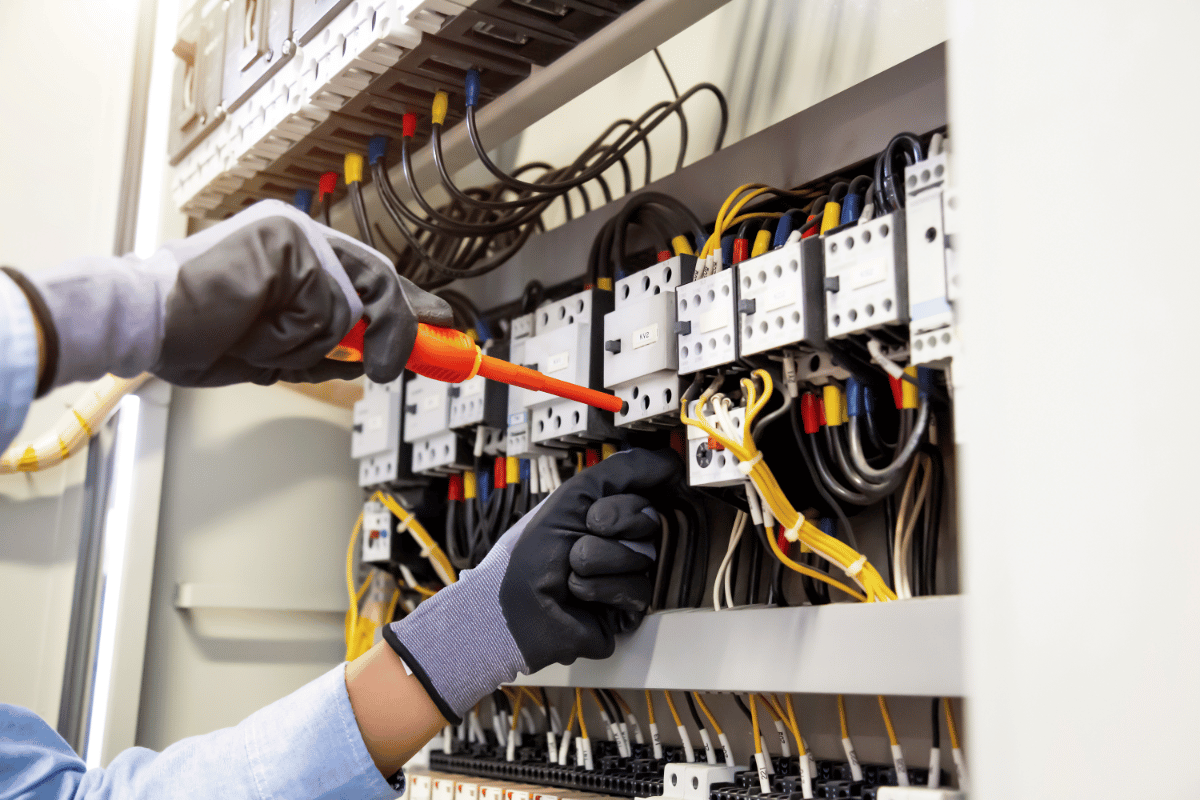Shocking Truth: Top Electrical Safety Tips Every Homeowner Should Follow
Electrical Safety Starts at Home
Why Electrical Safety Matters
Electricity is a big part of our lives. From lighting up rooms to running our gadgets, we depend on it every day. But with great power comes great responsibility. Keeping your home electrically safe can prevent nasty accidents, injuries, and even fires. So, let’s make sure your home is a safe haven for you and your loved ones.
Check out these eye-opening stats:
| Electrical Safety Fact | Percentage |
|---|---|
| House fires caused by electrical failures | 30% |
| Electrical injuries needing medical help | 20% |
| Homeowners clueless about electrical safety risks | 50% |
Watch Out for These Electrical Hazards
Knowing what to look out for is half the battle. Here are some common electrical hazards you should keep an eye on:
- Overloaded Outlets: Plugging too many things into one outlet can make it overheat and possibly catch fire.
- Frayed or Damaged Cords: Regularly check your cords. If they’re frayed, they can expose wires and cause shocks or fires.
- Wet Areas: Using electrical devices near water is a big no-no. It can lead to serious shocks. Keep appliances away from wet spots.
- Badly Installed Fixtures: If your light fixtures or outlets aren’t installed right, they can cause electrical problems.
By staying alert and knowing these hazards, you can cut down the risk of electrical mishaps at home. For more tips on keeping your home safe, check out our home safety checklist and home safety tips.
Top Electrical Safety Tips for Homeowners
Electricity is a powerful resource, and keeping your home safe from electrical hazards is a must. Here are some key electrical safety tips to follow.
Regular Check-Ups and Maintenance
Regular check-ups of your electrical system can help prevent potential hazards. Set a schedule to check your wiring, outlets, and appliances for any signs of wear and tear. Here are some key areas to focus on during your inspections:
| Inspection Area | What to Look For |
|---|---|
| Outlets | Cracks, discoloration, or loose connections |
| Cords and Wires | Fraying, exposed wires, or damage |
| Circuit Breakers | Tripped breakers or unusual smells |
| Appliances | Overheating or strange noises |
If you notice any issues, fix them promptly to keep your home safe. For a detailed guide, check out our home safety checklist.
Smart Use of Extension Cords and Outlets
Extension cords can be super handy, but using them wrong can lead to electrical fires. Follow these tips when using extension cords and outlets:
- Limit Use: Use extension cords only for short periods. They aren’t a permanent fix.
- Avoid Overloading: Plugging too many devices into one outlet can cause overheating.
- Check Ratings: Make sure your extension cord is rated for the devices you’re using.
- Use Grounded Outlets: Always plug into grounded outlets to lower the risk of shock.
Need more tips for making your home safer? Check out our article on home safety tips.
Safe Handling of Electrical Appliances
When using electrical appliances, safety should always come first. Here are some best practices:
| Appliance Type | Safety Tips |
|---|---|
| Kitchen Appliances | Unplug when not in use, keep cords away from water |
| Power Tools | Wear safety gear and follow manufacturer instructions |
| Heating Devices | Keep flammable materials away and never leave unattended |
Make sure you know the safety features of each appliance you own. Proper handling can greatly reduce the risk of accidents. For families with kids, consider checking out our guide on childproofing your home to boost safety around electrical devices.
Keeping Your Family and Home Safe
Making sure your home is electrically safe is a big deal for keeping your loved ones and property out of harm’s way. Here are some easy steps to boost electrical safety.
Why You Need Ground Fault Circuit Interrupters (GFCIs)
Ground Fault Circuit Interrupters (GFCIs) are lifesavers when it comes to preventing electrical shocks. They keep an eye on the electrical current and cut the power if something’s off. This is super important in places where water and electricity might mix, like kitchens and bathrooms.
Here’s where you should think about putting GFCIs:
| Location | Where to Install GFCIs |
|---|---|
| Kitchen | Outlets near the sink |
| Bathroom | Outlets within six feet of water sources |
| Outdoor Areas | All exterior outlets |
| Laundry Room | Outlets near water sources |
Putting GFCIs in these spots can seriously cut down the risk of electrical mishaps. For more tips, check out our home safety tips.
Childproofing Electrical Outlets
Got little ones running around? It’s a must to childproof your electrical outlets to avoid accidents. Here are some ways to do it:
| Method | How It Works |
|---|---|
| Outlet Covers | Use plastic or sliding covers to block access. |
| Tamper-Resistant Outlets | These have safety shutters that only open when a plug is inserted. |
| Furniture Placement | Put furniture in front of unused outlets to keep them out of reach. |
These tricks can help keep your kids safe from electrical dangers. For more on making your home kid-friendly, visit our childproofing your home article.
Making an Emergency Plan
Having a plan for electrical emergencies is key to keeping your family safe. Here’s what to include:
- Emergency Contacts: List important numbers like local emergency services and an electrician near you.
- Meeting Points: Pick safe spots outside the house for everyone to meet if you need to evacuate.
- Practice Drills: Regularly go over what to do in case of electrical fires or power outages.
Consider making a home safety checklist that covers electrical safety as part of your emergency plan.
By following these electrical safety tips, you can keep your family and home safe from potential hazards.
When to Call a Professional
Knowing when to call a local manly electrician can save your home from potential disasters. Here’s a quick guide to help you spot the signs that scream for professional help and why it’s a smart move to get regular check-ups from the pros.
Signs You Need an Electrician
Keep an eye out for these red flags that mean it’s time to bring in an expert:
| Sign | Description |
|---|---|
| Frequent Circuit Breaker Trips | If your circuit breaker keeps tripping, it might be overloaded or have a short circuit. |
| Flickering Lights | Lights that flicker or dim could mean there’s a wiring issue or a problem with your fixtures. |
| Burning Smell | A burning smell near outlets or appliances is a big no-no and needs immediate attention. |
| Warm Outlets | Outlets that feel warm or hot can indicate an overload and might be a fire hazard. |
| Buzzing Sounds | Buzzing noises from outlets or switches can mean loose wiring or a faulty device. |
If you spot any of these signs, don’t wait. Call a qualified electrician right away to keep your home safe.
Why Professional Inspections Matter
Getting your electrical system checked by a licensed electrician isn’t just a good idea—it’s essential. Here’s why:
- Peace of Mind: Knowing an expert has checked your system can help you sleep better at night.
- Preventive Maintenance: Catching problems early can save you from costly repairs and dangerous situations.
- Code Compliance: Electricians know the local codes and can make sure your system is up to standard.
Make regular inspections part of your home safety routine to keep everything running smoothly.
Risks of DIY Electrical Work
Sure, DIY projects can be fun, but when it comes to electricity, it’s best to leave it to the pros. Here’s why:
- Injury: Messing with electricity without the right know-how can lead to serious injuries or worse.
- Fire Hazards: Bad wiring or overloaded circuits can easily start a fire.
- Higher Costs: Mistakes in DIY projects often mean more expensive repairs down the line.
For your safety, stick to the experts for electrical work. Want more tips on keeping your home safe? Check out our article on home safety tips for more advice.





